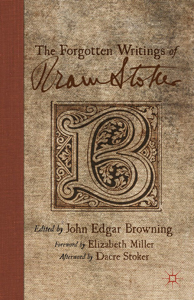When they told the poor Poet that the One he loved best was lying sick in the shadow of danger, he was nigh distraught.
For weeks past he had been alone; she, his Wife, having gone afar to her old home to see an aged grandsire ere he died.
The Poet’s heart had for some days been oppressed with a strange sorrow. He did not know the cause of it; he only knew with the deep sympathy which is the poet’s gift, that the One he loved was sick. Anxiously had he awaited tidings. When the news came, the shock, although he expected a sad message, was too much for him, and he became nigh distraught.
In his sadness and anxiety he went out into the garden which long years he had cultured for Her. There, amongst the bright flowers, where the old statues stood softly white against the hedges of yew, he lay down in the long uncut summer grass, and wept with his head buried low.
He thought of all the past-of how he had won his Wife and how they loved each other; and to him it seemed a sad and cruel thing that she was afar and in danger, and he not near to comfort her or even to share her pain.
Many many thoughts came back to him, telling the story of the weary years whose gloom and solitude he had forgotten in the brightness of his lovely home.-
How in youth they twain had met and in a moment loved. How his poverty and her greatness had kept them apart. How he had struggled and toiled in the steep and rugged road to fame and fortune.
How all through the weary years he had striven with the single idea of winning such a place in the history of his time, that he should be able to come and to her say, “I love you,” and to her proud relations, “I am worthy, for I too have become great.”
How amid all this dreaming of a happy time which might come, he had kept silent as to his love. How he had never seen her or heard her voice, or even known her habitation, lest, knowing, he should fail in the purpose of his life.
How time-as it ever does to those who work with honesty and singleness of purpose-crowned the labours and the patience of his life.
How the world had come to know his name and reverence and love it as of one who had helped the weak and weary by his example; who had purified the thoughts of all who listened to his words; and who had swept away baseness before the grandeur and simpleness of his noble thoughts.
How success had followed in the wake of fame.
How at length even to his heart, timorous with the doubt of love, had been borne the thought that he had at last achieved the greatness which justified him in seeking the hand of her he loved.
How he had come back to his native place, and there found her still free.
How when he had dared to tell her of his love she had whispered to him that she, too, had waited all the years, for that she knew that he would come to claim her at the end.
How she had come with him as his bride into the home which he had been making for her all these years. How, there, they had lived happily; and had dared to look into the long years to come for joy and content without a bar.
How he thought that even then, when though somewhat enfeebled in strength by the ceaseless toil of years and the care of hoping, he might look to the happy time to come.
But, alas! for hope; for who knoweth what a day may bring forth? Only a little while ago his Dear One had left him hale, departing in the cause of duty; and now she lay sick and he not nigh to help her.
All the sunshine of his life seemed passing away. All the long years of waiting and the patient continuance in well-doing which had crowned their years with love, seemed as but a passing dream, and was all in vain-all, all in vain.
Now with the shadow hovering over his Beloved One, the cloud seemed to be above and around them, and to hold in its dim recesses the doom of them both.
“Why, oh why,” asked the poor Poet to the viewless air, “did love come to us? Why came peace and joy and happiness, if the darkening wings of peril shadow the air around her, and leave me to weep alone?”
Thus he moaned, and raved, and wept; and the bitter hours went by him in his solitude.
To read the rest of this story visit:
The Castle of the King at bramstoker.org


